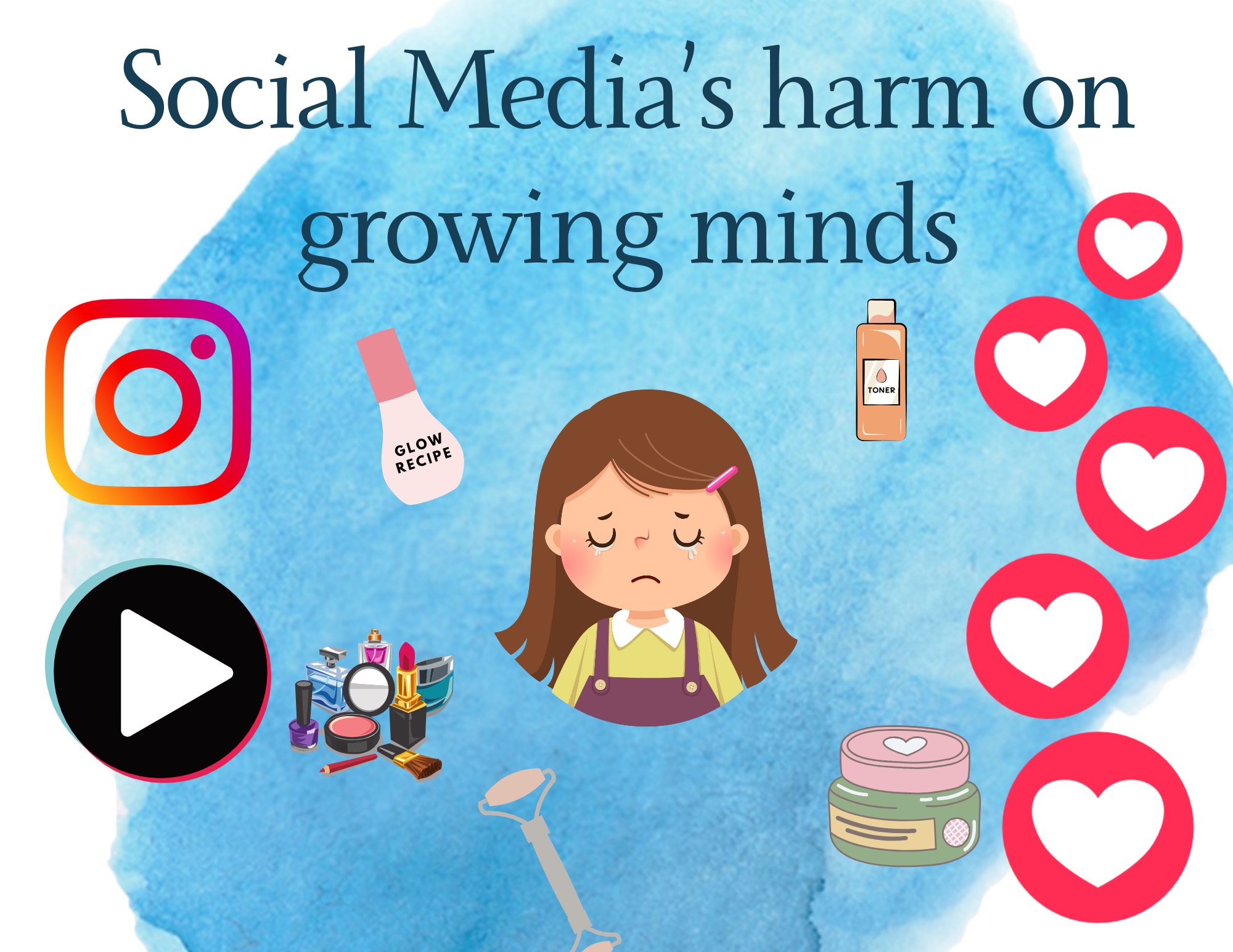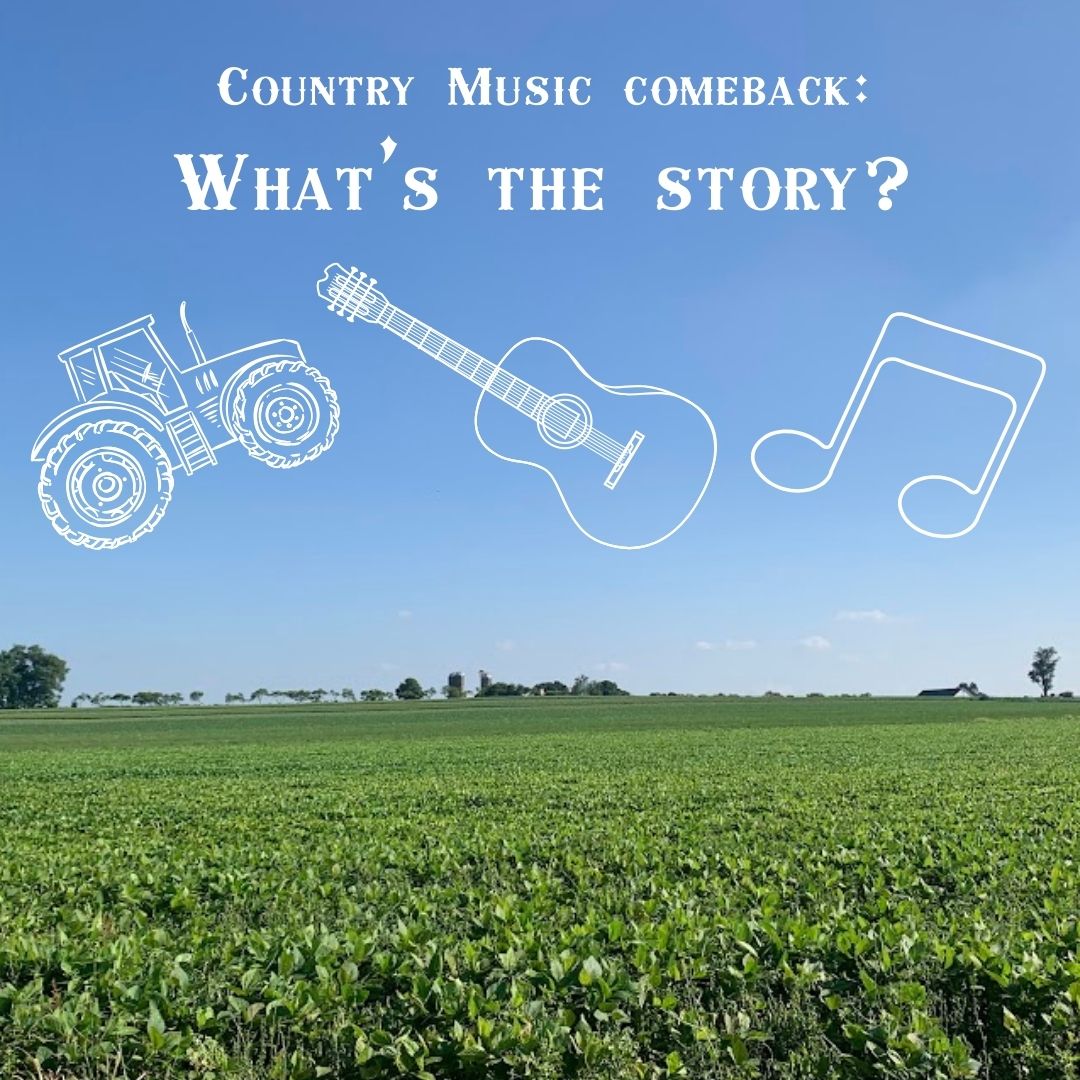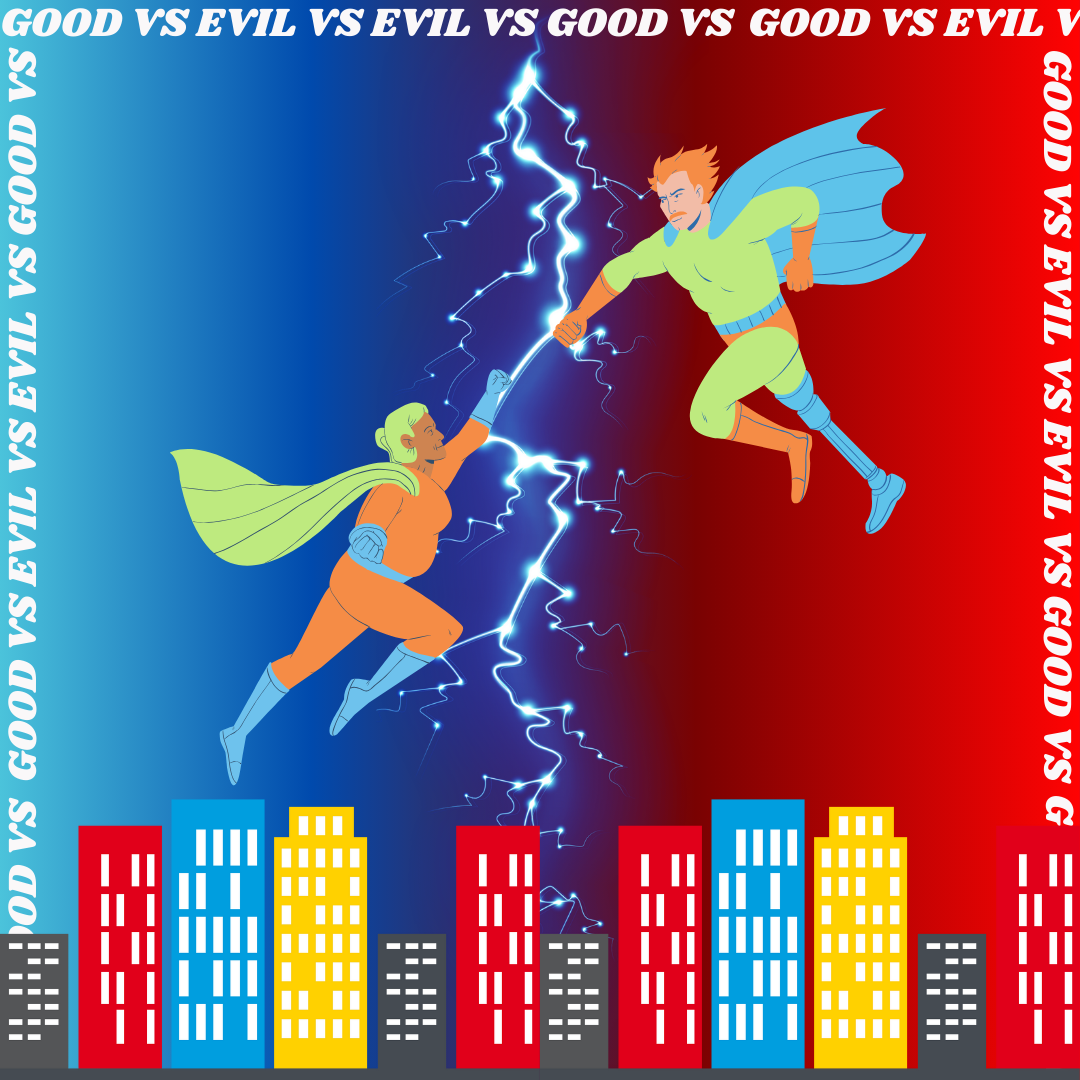As I settle down and unwind at the end of the day, I often open TikTok and scroll before falling asleep. As I do so, I come across tweens on the app doing skin care and make-up routines and am immediately taken aback. More and more adolescents from Generation Alpha and the younger members of Generation Z are using social media en masse, which leads to concerns as these apps can have detrimental effects on their growing minds before they even reach their teenage years.
“Get Ready With Me” videos — often known by the abbreviation “GRWM” — are extremely popular amongst TikTok influencers. Influencers typically share the products they are using and go through the steps they take getting ready, while telling a story or giving advice to viewers in these videos. Drunk Elephant, Rare Beauty, Glow Recipe and Sol de Janeiro are just a few of the brands being promoted through these videos, and all of them have colorful, appealing packaging. The influencers using these products also almost always have clear skin, so it’s no wonder that many young minds have become influenced to go out and purchase these skincare and makeup products for their own use. There is only one major concern: these products are not meant for their delicate skin.
Dermatologists have warned that these products contain harmful chemicals and ingredients, such as retinol, exfoliating acids, peptides and other anti-aging properties not meant for pediatric skin. These products can in turn cause premature wrinkles and breakouts, ruining their skin barrier at the young ages of 10-12. Toxic chemicals found in heavy makeup can also lead to dry, itchy skin on young kids which can cause skin infections.
The influencers using these products also almost always have clear skin, so it’s no wonder that many young minds have become influenced to go out and purchase these skincare and makeup products for their own use.
A new term has been coined for the children getting ahold of these products: “Sephora 10 year olds.” These kids are known for running around beauty stores, pumping excessive amounts of costly, celebrity-endorsed products from the samples displayed and being disrespectful to employees. I, myself have seen kids ruining highlighter palettes, then going to the Drunk Elephant and Glow Recipe sections to do the same. These young kids do not need to have skincare or makeup routines. Their skin is just fine the way it is and introducing harmful products they think are helpful will ultimately lead to irreversible damage.
Another contributing factor to this phenomenon is the disappearance of once popular tween stores — such as Justice — which are no longer as common due to rising social media use and trends. The rise in social media use and consumerism is causing kids to grow up faster than before, making them push away their one and only childhood. When the older ladder of Generation Z were younger, we were influenced by toy advertisements seen on Disney Channel or Nickelodeon. However, after just a few years, preteens are now being influenced by social media trends as companies market fashion and skincare products to the children of the next generation.
Naomi Chowdhury, a former teacher and UNC Charlotte graduate who majored in psychology, explains how excessive exposure to social media at a young age can negatively impact mental health and identity development as adolescents do not get a chance to truly explore their own interests, and are instead influenced by what they see content creators doing online. This can consequently create a distorted perception of reality as they may feel pressure to present themselves in a particular way or to live up to unrealistic standards, diminishing their sense of self-expression and authenticity. Chowdhury worked with young children ages five to six and noticed how they would say phrases found in violent games online or from viral social media posts, which they should not be viewing at such a vulnerable age.
One of the worst effects of social media is the tendency it can often create in users to compare themselves to others on the opposite end of the screen. This can happen without the user even knowing it. Many teenagers are guilty of doing so, which makes social media only more harmful for younger, more malleable minds. What’s posted on social media can be deceiving as no one knows the true backstory of each post, so it’s crucial to never compare oneself to others online. Making comparisons can lead to body image issues and negative self-esteem that young kids do not need to associate themselves with.
There must be limits and guidelines established to restrict how much social media children use to protect them from all the harms that come along with apps such as TikTok and Instagram. Excessive social media use can hinder a child’s attention span and overall cognitive development as constant distractions make it difficult for developing minds to fully focus and engage in meaningful learning experiences. Children should never be in a hurry to get older or use products glorified on social media since their time as a young kid and teenager is so precious.









